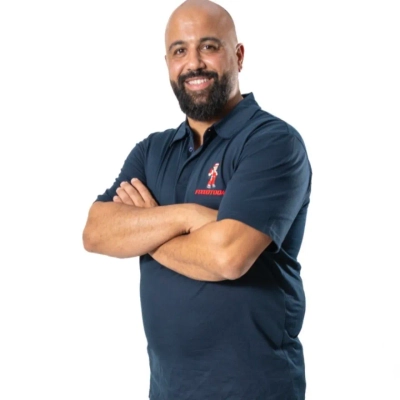4 Methods to Expand Your Spanish Vocabulary
Expanding your Spanish vocabulary can be an exciting journey with the right strategies. This article presents effective methods to enhance your Spanish language skills, backed by insights from experienced language learners and educators. From engaging with authentic content to creative learning techniques, these approaches will help you build a robust Spanish vocabulary for real-world communication.
- Immerse in Real Spanish on Reddit
- Learn Through Spanish Music and Lyrics
- Keep a Driver Slang Journal
- Combine Real Conversations with App Reviews
Immerse in Real Spanish on Reddit
My preference would be reading subreddits in Spanish—especially the messy, chaotic ones where people don’t hold back. It’s not the curated language you find in textbooks. It’s slang, abbreviations—the kind of Spanish that’s alive and USED by local people every day.
There’s something oddly effective about watching native speakers argue or joke in real time. You see how words bend under emotion and how grammar rules quietly crumble when speed and humor take over. I’d screenshot weird phrases, look them up, and then spot them again a few days later in a totally different thread. That repetition, out in the wild, makes the vocabulary feel earned.
 Brandon George
Brandon George
Director of Demand Generation & Content, Thrive Internet Marketing Agency
Learn Through Spanish Music and Lyrics
I’ve found that the most enjoyable and effective way to grow my Spanish vocabulary is through storytelling in music. I curate playlists filled with Spanish songs from all kinds of genres: pop, indie, folk, and even old-school ballads. I listen closely to the lyrics, then I dig into the meaning behind the words.
It’s amazing how certain phrases or expressions stick because they’re tied to a melody or an emotion. Music has this way of blending language learning with culture, making it feel less like study time and more like discovery. Plus, when I sing along, the words sink in naturally. For me, Spanish lyrics have become the perfect bridge between language fluency and cultural fluency.
 Emily Ruby
Emily Ruby
Owner, Abogada De Lesiones
Keep a Driver Slang Journal
One of my drivers, after a wild afternoon in Mexico City traffic, turned to a German client and said, “¡Estamos en el hoyo!”—literally “We’re in the hole,” but when translated colloquially, it meant “We’re screwed.” The client laughed while asking, “What does this mean?” In that moment, it struck me how rich—and valuable—street Spanish is.
As the owner of Mexico-City-Private-Driver.com, I have found that nothing broadens your Spanish horizons faster than collecting idioms and phrases sourced from real encounters with locals. I began keeping a “driver slang journal,” where I would note things our chauffeurs would say when casually talking to each other or to clients and then looked up or asked for specific meanings. Not textbook Spanish—real, lived, Mexican Spanish.
This practice allowed me to go beyond surface fluency. For example, I found out that “ahorita” does not always mean “now,” and that “mande” is a very polite way to say “what?”—a cultural nuance no app would explain to me. These details aren’t just linguistic; they are bridges to trust and belonging, especially in a business built on making our customers in a new city feel safe, welcome, and understood.
In fact, this vocabulary immersion has helped me close deals in a far shorter time than my competition when working with expats and foreign executives. I am not just selling a premium private driver service—I am selling cultural fluency. And that is an edge that Google Translate cannot compete with.
 Martin Weidemann
Martin Weidemann
Owner, Mexico-City-Private-Driver.com
Combine Real Conversations with App Reviews
The most effective way I have learned new Spanish words has been through experience in real-life conversations. On a daily basis, I also speak with Spanish speakers. It has helped me not just acquire vocabulary but to know how to use words in context, and therefore remember them. Words that I hear in real-life contexts enable me to understand their subtleties and use them more naturally.
I use technology as an aid to learn. Through the use of language apps, I do a daily review of vocabulary for roughly a period of 15 minutes, which consists of phrases and words that have appeared in my conversations. It helps me reinforce what I learn by speaking and also helps me cement vocabulary. Both verbal dialogue and reviews on the app ensure that I remain in a state of constant growth and development, and am able to articulate and express my needs in all spaces and places more effectively.
 Steven Bahbah
Steven Bahbah
Managing Director, Service First Plumbing
